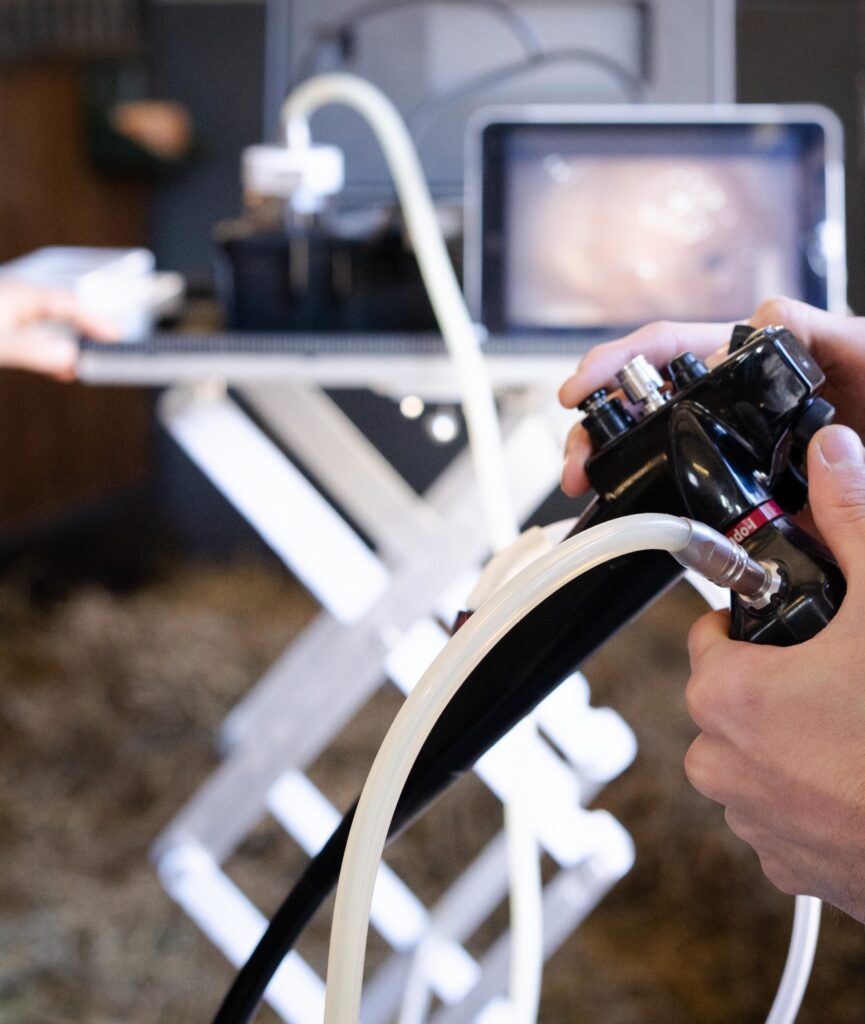Gastroscopy
Horses are often affected by equine ulcers, which cause symptoms of colic, weight loss, loss of appetite and decreased performance. Gastric ulcers, which occur in the stomach, are more common than colonic ulcers, which occur in the first portion of the small intestine. A gastroscopy is performed when there is reason to suspect either an ulcer or injuries in the small intestine. A gastroscopy can also be used to investigate if the patient has slow gastric emptying or gastroparesis.
Ulcers are particularly prevalent in racehorses and elite competition horses, with up to 90% of racehorses affected by them. Studies indicate that the prevalence is between 37 and 66% among other sport and leisure horses. Foals can also be affected by ulcers.

The horse has evolved to graze for most of the day. Therefore the horse’s stomach continuously secretes hydrochloric acid. If the stomach of a horse is completely empty between feeding sessions, hydrochloric acid may damage the mucosa of the stomach. The risk of ulcer is also elevated if the horse is on a diet of high-carb concentrated feed, working hard or on an empty stomach, being transported, adjusting to a new routine, suffering from a condition or being medicated.
If your horse is diagnosed with gastric ulcer, a recommended treatment is feeding them free-choice hay, which prevents the emptying of the stomach between feeding sessions. The best form of treatment for an ulcer-patient would be continuous grazing. Unfortunately, it is unfeasible in our climate. At least 75% of the feed should be high-quality, coarse feed, which is digested slowly. A diet of high-quality coarse feed reduces the likelihood of ulcer occurrence. Feeds that are high in carbohydrates should be replaced with liquid fat, e.g., cooking oil, or high-fat concentrated feed. Hard training, irregular schedule, transportation and stable environment changes should be avoided. Unfavorable stable conditions may cause an ulcer occurrence. However, a normal dosage of pain-relieving medicine will not.
A veterinarian will design a treatment plan and prescribe medication according to each patient’s individual needs. The most commonly prescribed ulcers drugs are proton-pump inhibitor omeprazole (Peptizole/Gastrogard) and sucralfate (Antepsin).
We perform gastroscopies using a state-of-the-art gastroscope right at your stable. We can even provide you with a video recording of the procedure afterwards, if you wish to have one. The horse should fast for a period of 16 hours and should not drink any water 4 hours before the procedure.